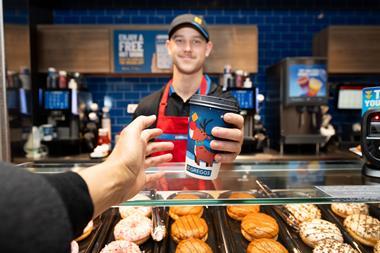Food safety chiefs yesterday announced that close to 700,000 eggs contaminated with fipronil, an insecticide not authorised for use in-food producing animals, has been distributed to the UK.
The escalation of the issue – previously only 21,000 affected eggs were thought to have entered the country – prompted the recall of products including sandwiches and salads.
Here we present industry reactions to the issue:
Adelie Foods
Food-to-go business Adelie Foods has withdrawn any potentially affected finished egg products and fillings from the supply chain.
The firm said all egg mayonnaise products with a use-by date up to and including 12 August have been removed from sale.
The action was taken to create a “clear break in its supply chain”, with all products now being made using British eggs.
“We have been working closely with our egg suppliers to make sure any affected batches are highlighted and are working closely with our customers to make sure we minimise the impact on those who buy our food-to-go products,” said Adelie Foods’ technical, risk & compliance manager Martin Baker.
“All action taken is in accordance with Food Standards Agency (FSA) guidelines and we expect normal supply to return today. (10 August)”
Morrisons
Morrisons was among the retailers who took precautionary measures to remove products, with the supermarket pulling egg sandwiches from its in-store cafés.
“We are working closely with the FSA on their fipronil investigation and we have taken precautionary and prompt action to withdraw the three products that may be affected,” said a spokeswoman. “The safety of our customers remains our priority.”
The retailer pointed out that a 100% of its whole shell eggs are British, and that none of these were affected.
Sainsbury’s
Sainsbury’s also pointed out that all eggs not used as ingredients were sourced from the UK and were not affected.
"The safety of our products is our priority,” said a spokesman. “Our supplier has made us aware that two salad bowls, which contain egg, may include very small traces of fipronil.
“The FSA has advised that this is unlikely to pose a health risk, but we’re withdrawing these products from sale on a temporary basis as a precautionary measure. We’re sorry for any inconvenience this may cause.”
Other retailers
British Baker contacted Marks & Spencer and Tesco which both said that they had not been affected and had no plans to remove any of their egg products from their stores.
British Lion Egg Processors
British Lion Egg Processors criticised the buying policies of the supermarkets, with chairman Ian Jones accusing retailers of operating double standards when it came to eggs by stocking British Lion shell eggs but using imported eggs in many foods containing eggs.
“This is just the latest of a number of food safety issues connected to eggs produced outside of the UK in recent years,” he said. “Consumers clearly want retailers and food manufacturers to use good quality British ingredients that are produced to high standards of food safety, but in some prepared foods this is not the case.”
British Free Range Egg Producers Association
“Consumers want safe, traceable food and we have a ready-made scheme that delivers that in the form of the British Lion Code,” said the British Free Range Egg Producers Association boss Robert Gooch.
“Retailers have shown good commitment to British shell eggs but processed egg is often sourced from other countries.”
Food & Drink Federation
The FDF said it and its members were working closely with the FSA to identify which products needed to be withdrawn with immediate effect, due to the presence of fipronil in the finished product.
“The decision to withdraw products is not due to food safety concerns, but is based on the fact that fipronil is not authorised for use in food-producing animals,” it stated. “As the FSA has said, it is unlikely that foods made with contaminated eggs are of any risk to public health.”
































No comments yet